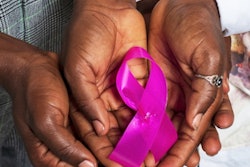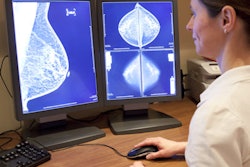Women's unmet social needs should be considered to better promote breast cancer screening utilization and early-stage cancer diagnosis, suggest findings published February 13 in JAMA Network Open.
Researchers led by Neha Goel, MD, from the University of Miami in Florida found that access to screening mammography did not translate to mammography use and that increasing unmet social needs were tied to lower rates of screening mammography. Also, women with high levels of unmet social needs were more likely to present with late-stage breast disease.
“This novel research is important as diagnosis at a later stage significantly affects survival outcomes, and interventions that promote stage-shifting are critical,” Goel and colleagues wrote.
While breast cancer screening, diagnosis, and treatment have improved over the decades, health disparities persist in terms of mortality. One reason for this is that women living in disadvantaged neighborhoods continue to present with later-stage breast cancer.
Social detriments of health have been explored for their role in contributing to health disparities. The researchers noted that unmet social needs are downstream mediators of social detriments that are often more within reach for health systems and physicians to address in their patients. These include housing instability, social isolation, food insecurity, and transportation challenges, among others.
However, the researchers also pointed out that there is a knowledge gap evaluating the impact of unmet social needs on the use of screening mammography and breast cancer stage at diagnosis. This includes high-income settings with access to screening mammography.
The Goel team evaluated three areas in its study: whether city-funded screening mammography is tied to screening mammography use; whether unmet social needs are linked to screening mammography use; and whether unmet social needs are tied to later-stage disease at diagnosis.
The study included women with stages I-IV invasive ductal or lobular carcinoma treated at an academic medical center from 2020 to 2023. This included both an underserved safety-net hospital and a National Cancer Institute-designated academic cancer center.
Of the 322 women who completed the Health Leads Social Needs Screening Toolkit, 201 (62%) self-identified as Hispanic, 63 (19%) as non-Hispanic Black, and 63 (19%) as non-Hispanic white. Of the total, 255 (76%) women with access to city-funded screening mammography completed a screening mammogram.
The researchers found that women who presented to the safety-net hospital were more likely to present with late-stage disease (31%) compared to early-stage disease (18%, p = 0.04).
They also reported that not completing a screening mammography was significantly associated with having an increasing number of unmet social needs, with an odds ratio (OR) of 0.74 (p = 0.047), along with an increasing age at diagnosis (OR, 0.92; p < 0.001).
Finally, increasing unmet social needs was significantly linked to late-stage diagnosis beyond screening mammography, with an OR of 1.38 (p = 0.04).
The study authors suggested that screening for social needs could help develop effective interventions and thus improve breast cancer outcomes. They emphasized that their results show a need to integrate such screening measures to identify these unmet concerns.
“In turn, partnerships between hospitals, social workers, and communities should aim to develop targeted interventions to overcome barriers to screening utilization and unmet social needs to increase early-stage diagnosis, a direct mediator of improved survival outcomes, even in high-income countries with access to screening mammography,” they wrote.
The full study can be found here.



















